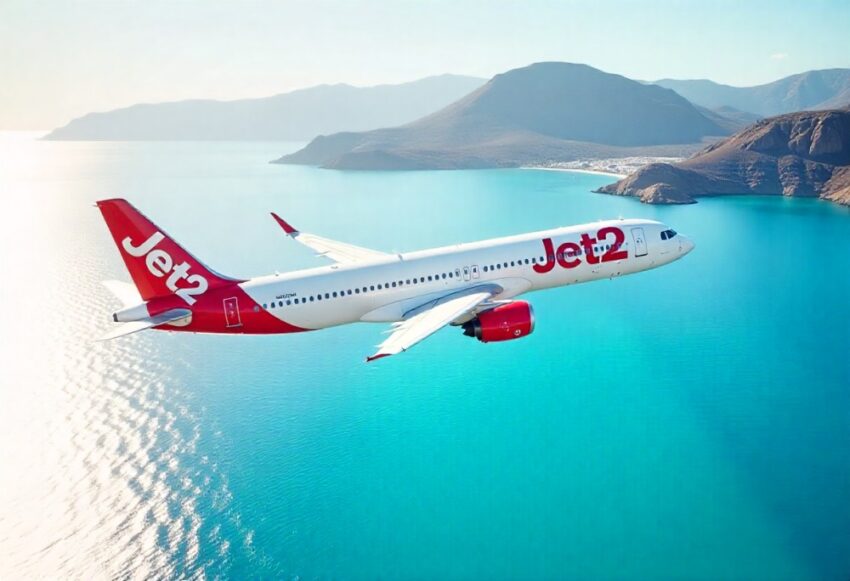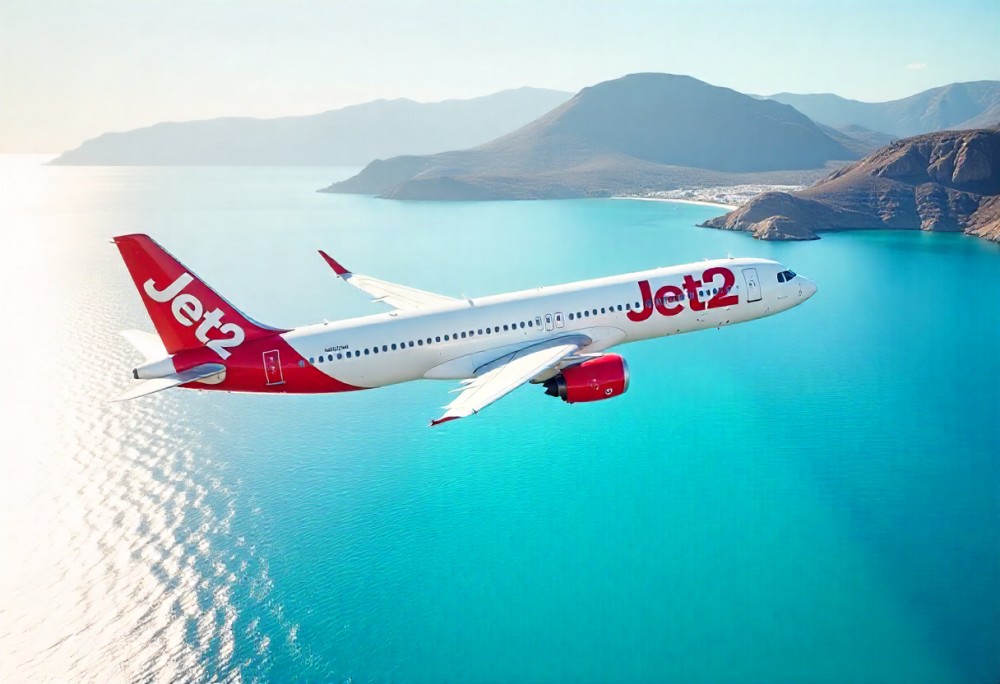Published on
October 8, 2025

Spain is ushering in a transformative era of tourism, with Jet2 at the forefront of driving innovative strategies that prioritize sustainability, responsible travel, and enriching experiences for visitors. As traditional approaches that focused solely on increasing tourist numbers prove unsustainable, both the Spanish government and local authorities, particularly in Mallorca, are shifting toward balanced tourism models that protect communities, preserve natural landscapes, and enhance the overall visitor experience. Jet2 is playing a pivotal role in this shift by promoting off-peak travel, encouraging exploration of lesser-known destinations, and aligning its operations with the nation’s sustainable tourism goals. Through these initiatives, Spain aims to maintain its global appeal while ensuring that tourism growth contributes positively to the economy, local culture, and the environment, creating a win-win scenario for travelers and residents alike.
Spain is undergoing a profound transformation in its tourism sector, with Jet2 playing a pivotal role in spearheading the shift towards more sustainable and responsible travel practices. As traditional mass tourism begins to take a backseat, Spanish authorities, particularly in popular destinations like Mallorca, are focusing on a more balanced approach that prioritizes environmental preservation, local community welfare, and long-term economic stability. Jet2, understanding the growing demand for eco-conscious travel, has aligned its strategies to not only support off-peak tourism but also promote lesser-known regions across Spain, easing the pressure on overcrowded hotspots. By embracing this new direction, both the airline and Spain aim to create a tourism model that benefits visitors, locals, and the environment, ensuring that Spain’s allure as a top global destination remains intact while fostering sustainable growth.
Jet2 and the Shifting Focus of Spanish Tourism: A New Era for Mallorca
Jet2, one of the UK’s prominent airlines, has long been a key player in facilitating travel to various European destinations, including popular spots in Spain. The airline’s services cater to millions of tourists seeking both short getaways and extended stays across the continent. At the recent annual conference hosted by the UK travel trade association, ABTA, in Mallorca, the airline’s CEO, Steve Heapy, shed light on significant developments in the tourism landscape, particularly within Spain. His comments centered around the changing priorities of Spanish tourism authorities, who are moving away from merely attracting higher volumes of visitors in favor of a more sustainable and balanced approach.
The Evolving Priorities of Spanish Tourism
Spain, and Mallorca in particular, has long been one of Europe’s favorite tourist destinations. The Mediterranean island has attracted millions each year, drawn by its warm climate, beautiful beaches, and rich cultural history. Historically, Spanish tourism officials focused heavily on increasing visitor numbers, aiming to boost economic benefits by attracting more international travelers. However, in recent years, the situation has changed.
Steve Heapy, speaking at ABTA’s annual conference, highlighted a noticeable shift in strategy by Spanish authorities. According to Heapy, there is now a clear emphasis on sustainability and balancing the influx of tourists with the well-being of local communities and the environment. The idea is no longer to flood the country with as many visitors as possible but to focus on attracting a more manageable and responsible number of tourists who contribute positively to local economies without overwhelming the destination’s resources.
Mallorca and the Anti-Tourism Sentiment
In recent years, Mallorca has become the epicenter of anti-tourism movements in Spain. The island, which once thrived on tourism, has seen increasing frustration from local residents. Many argue that the exponential growth in tourism has led to undesirable side effects, such as rising housing costs and overcrowded public spaces. Protests and demonstrations against the negative impact of mass tourism have gained momentum, drawing attention to the need for more sustainable tourism practices.
Local residents have expressed concerns over the rising costs of living, with short-term holiday rentals pushing up the prices of long-term housing. The demand for properties that cater to tourists, often booked through platforms like Airbnb, has left many locals struggling to find affordable homes. This issue has been particularly acute in the capital city of Palma and other popular towns across the island.
Moreover, the surge in tourist numbers has put significant pressure on local infrastructure, with roads, public transport, and healthcare services often stretched to their limits. The impact of mass tourism on Mallorca’s natural environment has also become a point of contention, with calls for greater preservation of the island’s landscapes, beaches, and rural areas.
The Call for Sustainable Tourism
As the demand for sustainable practices in tourism grows, Spanish authorities are beginning to embrace a more balanced approach. This new direction aims to preserve the charm and authenticity of popular destinations like Mallorca, while minimizing the strain on local communities and ecosystems. It’s not just about reducing the number of visitors; it’s about creating a tourism model that enhances both the tourist experience and the quality of life for residents.
Government officials in Spain have started implementing measures designed to reduce the negative effects of mass tourism. One of the key aspects of this approach is improving regulations around short-term rentals. In Mallorca, local authorities have been taking steps to curb the rise of unregulated rentals, which they believe contribute to inflated housing prices and a loss of community character. Additionally, there is a push to diversify tourism offerings across Spain, encouraging visitors to explore lesser-known regions rather than concentrating solely on the most famous hotspots.
Jet2’s Role in the Changing Landscape
As a major player in the travel industry, Jet2’s role in the evolving tourism landscape is crucial. The airline’s CEO, Steve Heapy, acknowledged that as part of this shift in strategy, the airline has been actively working with Spanish tourism authorities to align with their new priorities. Jet2 is committed to promoting sustainable travel options, ensuring that the airline’s services contribute to the overall health of the tourism ecosystem.
Jet2 has already made strides in promoting off-peak travel, offering routes and packages that help to disperse tourist traffic across different seasons. By encouraging travel during quieter times of the year, Jet2 helps to reduce the pressure on destinations like Mallorca during the peak summer months. This strategy not only supports local communities but also ensures a more relaxed and enjoyable experience for visitors.
Additionally, Jet2 has shown an interest in exploring lesser-known destinations across Spain, helping to alleviate the overcrowding in traditional tourist hotspots. By promoting regions outside of Mallorca’s popular areas, the airline aims to spread the economic benefits of tourism more evenly throughout the country, supporting smaller towns and rural areas that have not historically benefited from mass tourism.
The Road Ahead for Mallorca and Spanish Tourism
The future of tourism in Mallorca and Spain as a whole is increasingly focused on sustainability, responsible travel, and ensuring the long-term health of both local communities and natural landscapes. The shift away from simply boosting tourist numbers is not just a response to local concerns but a broader strategy to create a more sustainable and balanced tourism model for the country.
For Jet2, this new direction presents both challenges and opportunities. As the airline adapts to the evolving landscape, its collaboration with Spanish tourism authorities will be essential in promoting destinations that strike the right balance between attracting tourists and preserving the quality of life for locals. As more travelers seek out responsible tourism options, the demand for sustainable travel experiences is likely to grow, and Jet2 appears well-positioned to meet this demand.
Spain is reshaping its tourism industry with Jet2 leading the way, promoting sustainable travel that benefits both visitors and local communities while easing pressure on overcrowded destinations like Mallorca.
Spain is redefining tourism with Jet2 leading the way in promoting sustainable, responsible travel that protects local communities and landscapes while offering unforgettable experiences across Mallorca and beyond.
Ultimately, the success of Spain’s tourism industry will depend on the ability to adapt to changing conditions and the willingness to prioritize sustainability over short-term gains. By fostering a tourism model that benefits both visitors and residents, Spain can continue to thrive as a leading global destination, while maintaining the charm and character that make its destinations so special.

